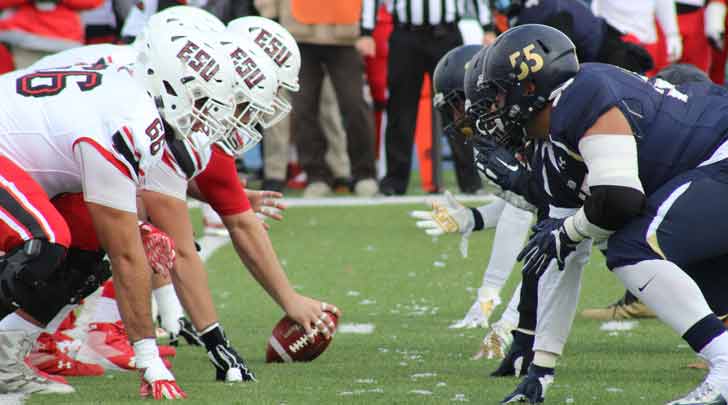State infrastructures tend to pride themselves on optimizing budgets. They increase them. They decrease them. They create surpluses. And perhaps above all, they figure out how to capitalize on revenue streams that exist but they’ve yet to tap.
The California state government is no different in this regard. As one of the state’s premiere capitalistic markets in entertainment, sports, agriculture, tourism and so much more, they have constantly found ways to extract value from what in-state residents find important. That is, except when it comes to sports betting.

Ever since the United States Supreme Court overturned the Professional and Amateur Sports Protection Act back in 2018, California has been considered the state with the biggest financial incentive to approve some form of sports gambling. Roughly one half-decade later, however, they’ve yet to make the transition—even though more than half the country has done the opposite.
Mind you, this issue goes well beyond the sports gambling industry. It is a matter of so much more: politics, advertising and marketing, shifting ideals and agendas and more.
Why hasn’t California legalized sports betting to this point? How much money is the state leaving on the table without joining the 30-plus other states who have OK’d some form of it? What does the future hold for this subject? Let’s venture into the weeds of complicated state politics and the developments they sew.
California is Considered a Multibillion-Dollar-Per-Year Sports Gaming Market
While it is impossible to know just how much sports betting revenue California could generate without seeing it rolled out, experts in the gaming industry estimate that The Golden State is costing itself unfathomable amounts of money.
Chris Grove, a sports betting industry investor and partner in consulting firm Eilers & Krejcik Gaming, spoke with ESPN earlier this year and projected that California could create more than $3 billion in annual revenue with the legalization of retail and online sports betting.
That figure reads like a typo. But it’s not as far-fetched as it sounds. California has the largest population in the United States, with a little over 39 million residents, according to the latest census data. That trounces the New York population by nearly 20 million people—notable separation because The Empire State is considered to have the second-largest pro-sports market in the country. As for the biggest pro sports market in the USA, that would belong to California.
They house multiple teams across every major North American league, many of which are considered flagship franchises with global reach. This matters when trying to forecast California’s potential revenue.

New York’s Success in Legal Sports Gaming Hints at Potential California Revenue
Consider sports betting in New York. They took in $16 billion worth of bets during the first year sports gambling was legal. It took them only 18 months, meanwhile, to surpass a $25 billion betting handle, which is simply the total amount money wagered.
Let’s assume California holds the same handle-to-population ratio. If New York took in $25 billion against a population of 19.7 million people, this means California’s 39.1 million population would place $30 billion in total bets during an 18-month period.
Of course, the handle does not represent pure profit. You need to subtract winning wagers from the equation.
After all was said and done, New York ended up with $1.1 billion in additional tax revenue. Using the same scale, that would put California on course for $2.2 billion in tax revenue over their first 18 months.
This falls well short of Grove’s $3 billion per year projection, but also well north of $1 billion. Plus, given the larger scope of California’s pro sports market, there’s a chance these estimations wind up being too conservative.
So, Why Hasn’t California Legalized Sports Betting?
The short answer to this question: warring agendas.
California has struggled to decide how legal sports betting will be deployed. Corporate sportsbooks desperately want to crack the most lucrative market in the United States. Naturally, then, they are lobbying to have online wagering featured as part of any constitutional amendment.
However, the state’s tribes have aggressively pushed back against these sentiments. They think sports betting should be exclusive to tribal properties. Going this route is a much less lucrative endeavor on a larger scale. Tribal casinos don’t have the reach of major corporate sportsbooks. But tribes are more concerned with preserving their own business models. They don’t want to compete with online entities for customers. They also worry an increase in online presences will eat into their casino foot traffic and business beyond sports betting, as well.
This dilemma is not unique to California. It has surfaced in plenty of other states. In many cases, the disagreement derails sports betting campaigns in their entirety. In other cases, concessions are made. States will legalize only on-site betting. Or they will legalize both retail and online sports betting while stipulating how the two sides must coexist.
Until this point, California state tribes and corporate sportsbooks have not found a middle ground. To the contrary, they spent millions of dollars ahead of the last general election campaigning against one another.
The end result wasn’t pretty. Each side had separate gambling bills on the 2022 electoral ballot. Proposition 26 was backed by tribes and gave them exclusive rights to sports betting. Proposition 27 was bankrolled by corporate sportsbooks and called for widespread online legalization. In the end, though, Californians voted against both bills.
This hidden knowledge used by the elites will let you generate wealth and prosperity

The Future of California Sports Betting Remains Hazy
Between what happened during the 2022 elections and how much money California is leaving on the table, a singular question must be raised: Will this issue ever be resolved?
Most agree it will be. Sports betting is inevitable for every state, including California. Perhaps especially California.
At the same time, the state hasn’t pushed for tribes and corporations to get on the same page. In fact, the California government mostly offered support for Proposition 26, the gambling bill that would have proven far less lucrative. This suggests even officials aren’t as concerned about capitalizing on the potential of their sports betting market, which could delay legalization even further.
On the flip side, many expect corporate sportsbooks to back off from their attempts to enter California. They just spent millions and millions of dollars on a failed campaign. Multiple tribal leaders have said they expect online sportsbooks to sit out the debate in 2024, setting the stage for retail-only approval.
Whether that’s the case will be a matter of course. For now, only one thing’s for certain: Californians are already spending billions of dollars per year on sports betting. And the state, at some point, will eventually be compelled to cut itself a piece of that pie.
